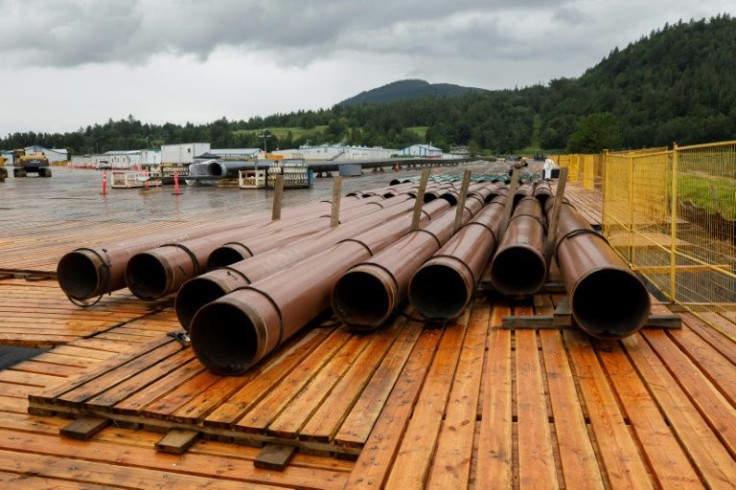Troubled Canada Pipeline No Longer Profitable: Budget Watchdog
The controversial Trans Mountain pipeline expansion project, now under construction in western Canada after being nationalized, is no longer profitable as costs have spiralled, Parliament's budget watchdog said Wednesday.
In a report, the office of the Parliamentary Budget Officer said a review of the project's finances found "that the government's 2018 decision to acquire, expand, operate, and eventually divest of the Trans Mountain assets will result in a net loss for the federal government."
Ottawa purchased the pipeline for Can$4.4 billion (US$3.4 billion) from Kinder Morgan four years ago to salvage the troubled expansion project.
But its current value, the PBO estimated, is only Can$3.9 billion, after construction costs soared to $21.4 billion -- a threefold increase from the original price tag -- and its completion was pushed one year to late 2023.
The negative valuation is based on the pipeline's future cash flows over 40 years, minus construction costs.
In response, Adrienne Vaupshas, the spokeswoman for Deputy Prime Minister Chrystia Freeland, told AFP the project is "in the national interest and will make Canada and the Canadian economy more sovereign and more resilient."

She cited independent analyses from BMO Capital Markets and TD Securities that concluded the project remains commercially viable at the higher costs.
The pipeline's sale, Vaupshas added, will only proceed after further consultations with Indigenous groups and the risks associated with it are reduced.
The project is to replace an aging conduit built in 1953 to deliver 890,000 barrels of oil a day from landlocked Alberta to the Pacific coast for shipping to new markets in Asia and elsewhere.
Prior to the government taking over the project, it had been stalled by legal challenges and protests by Indigenous groups and environmental activists.
On Wednesday, Environmental Defense called the project a "financially dangerous boondoggle" that will lead to "more carbon emissions for the planet."
"As the costs of the project keep ballooning, the government should cut its losses and cancel construction of the expansion pipeline -- before even more of our dollars are wasted," the group said in a statement.
© Copyright AFP {{Year}}. All rights reserved.





















